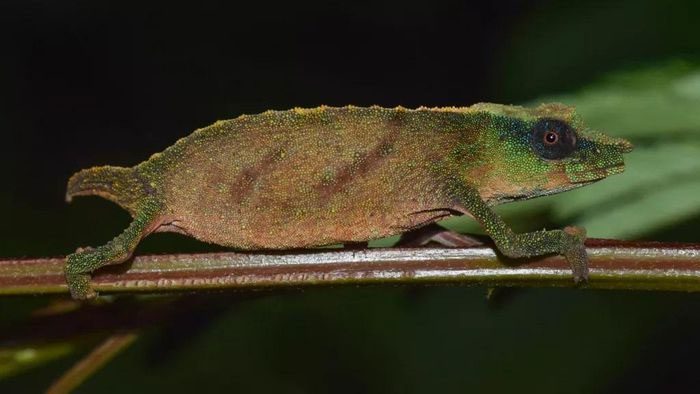A new study published on August 2 reveals that scientists have discovered the world’s rarest chameleon species, “clinging on to survive”, after fears that it had gone extinct since it was first identified in the 1990s due to significant deforestation.
Researchers found a population of the Chapman’s chameleon (Rhampholeon chapmanorum) surviving in small patches of tropical forest in southern Malawi, southeastern Africa.

The world’s rarest chameleon species found in southeastern Africa.
The lead author, Krystal Tolley, a researcher from SANBI and the University of Witwatersrand in South Africa, stated: “We don’t know if we will find more, but once in the forest, there are many, although I don’t know how long that will last.”
The Chapman’s dwarf chameleons are only 5.5 cm long. They camouflage themselves with dead leaves and were first discovered in a shrinking rainforest in Malawi Hills in 1992. They were later relocated to a separate forest 95 km away near Mikundi, also in Malawi, to increase their chances of survival.
The research team compared modern satellite images of the Malawi Hills forest with photographs taken in the 1980s and estimated that the forest has declined by 80%. Researchers identified areas where chameleons could still survive and surveyed them by walking along forest trails at night with torches when they are easier to spot.
They found 17 adult chameleons in two forest patches in Malawi Hills, and 21 adults and 11 juveniles in an area near Mikundi. According to the study, many chameleons may exist in other forest patches that the team could not survey.
The researchers analyzed the DNA of these chameleons and found that they are becoming isolated in forest patches and cannot move to breed and share genes.
Tolley remarked: “Deforestation needs immediate attention before this species reaches a point of no return.”
Most of the forest in Malawi Hills has been cleared for agriculture. The research team is calling for a comprehensive action plan to conserve these critically endangered chameleons to prevent their extinction.



















































